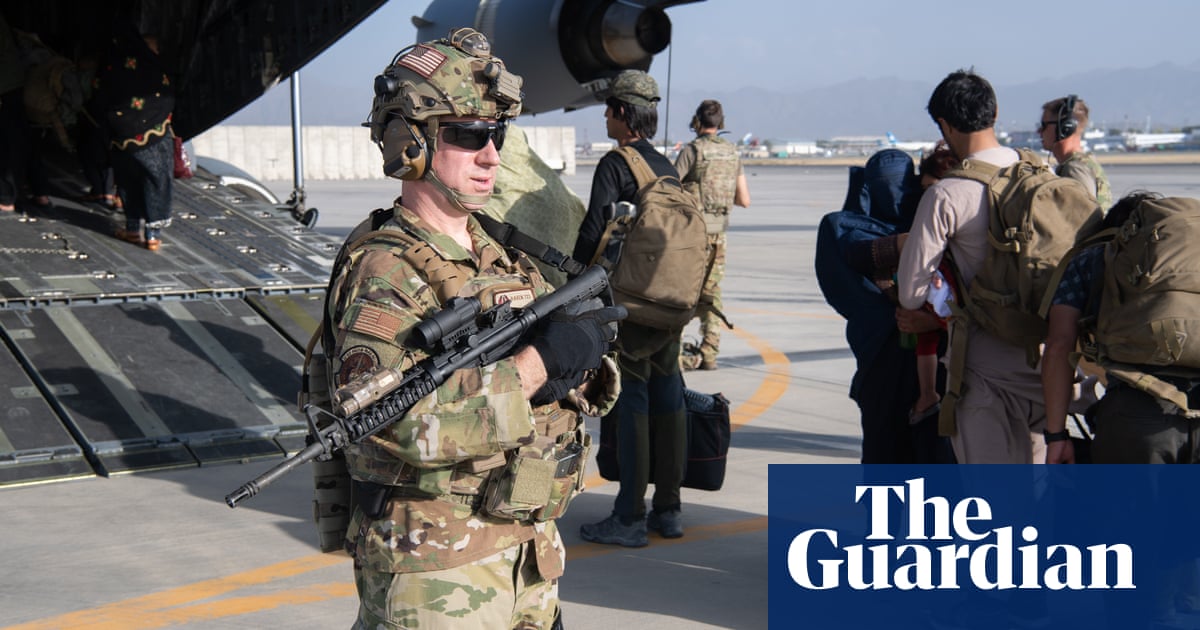
Afghanistan’s president, Ashraf Ghani, has blamed the speedy withdrawal of US-led troops for the worsening violence in his country, as government forces battled to prevent provincial cities from falling to the Taliban in a major escalation in fighting.
Taliban fighters assaulted at least three provincial capitals overnight – Lashkar Gah, Kandahar and Herat – after a weekend of heavy fighting that resulted in thousands of civilians fleeing the advancing militants.
On Monday, Ghani told parliament that “an imported, hasty” peace process “not only failed to bring peace but created doubt and ambiguity” among Afghans.
In an apparent recognition of the scale of the Taliban advance, Ghani said that his administration would now focus on protecting provincial capitals and major urban areas in the face of a rapid Taliban advance.
“The Taliban do not believe in lasting or just peace,” he said.
Fighting raged in Lashkar Gah, Helmand’s provincial capital, where the Taliban launched coordinated attacks on the city centre and its prison after the government announced the deployment of hundreds of commandos to the area.
Hours after the president’s remarks, Taliban fighters seized control of the provincial government’s radio and TV building, replacing normal broadcasts with religious songs. The building sits just 400 metres to the north of the provincial governor’s office, which was still under the control of the government, along with a few other government installations.
Fighting has intensified since early May, with the insurgents capitalising on the final stages of the withdrawal of US-led foreign forces after almost 20 years.
One resident, Hawa Malalai, warned of a growing crisis in the city. “There is fighting, power cuts, sick people in hospital, the telecommunication networks are down. There are no medicines and pharmacies are closed.”
For years, Helmand was the centrepiece of the US and British military campaign in Afghanistan, only for it to slip deeper into instability.
The province was the scene of some of the fiercest fighting between foreign forces and the Taliban over the years when tens of thousands of troops poured in for the former US president Barack Obama’s surge.
The vast poppy fields in the provinces provide the lion’s share of the opium for the international heroin trade, making it a lucrative source of tax and cash for the Taliban’s war chest.
The loss of Helmand’s capital would be a massive strategic and psychological blow for the government, which pledged to defend provincial capitals at all costs after losing much of the rural countryside to the Taliban over the summer.
Fighting also raged in some districts of Kandahar, the former bastion of the insurgents, and on the outskirts of the provincial capital.
Kandahar airport came under attack overnight on Sunday, with the Taliban firing rockets that damaged the runway, leading to the suspension of flights for several hours. The facility is vital to maintaining the logistics and air support needed to keep the Taliban from overrunning the city, while also providing aerial cover for large tracts of southern Afghanistan including nearby Lashkar Gah.
In the west, hundreds of commandos were also defending Herat after days of fierce fighting.
“The threat is high in these three provinces … but we are determined to repel their attacks,” the Afghan security forces spokesperson Ajmal Omar Shinwari told reporters on Sunday, adding it was an “emergency situation”.
The capture of any major urban centre by the Taliban would take its current offensive to another level and fuel concerns that the army is incapable of holding out.
“If Afghan cities fall … the US decision to withdraw from Afghanistan will be remembered as one of the most notable strategic blunders in American foreign policy,” the Australia-based Afghanistan expert Nishank Motwani told AFP.
It would show that Washington “abandoned the most pro-American government in the region to radical Islamists that believe in turning to rubble all that has been built over the past two decades”.
Kabul has repeatedly dismissed the militants’ steady gains over the summer as lacking strategic value, but has largely failed to reverse their momentum.
The Taliban have seized Afghan cities in the past but have retained them only briefly.
On Monday, the Biden administration announced that because of increased Taliban violence, it was expanding the eligibility of refugee admissions for Afghans with US links.
The state department said that the expanded eligibility would include Afghans who worked with US-based media organisations or non-governmental organisations or on projects backed by US funding.
But the US does not intend to help them leave the country, nor support them during the 12-14-month adjudication process.












